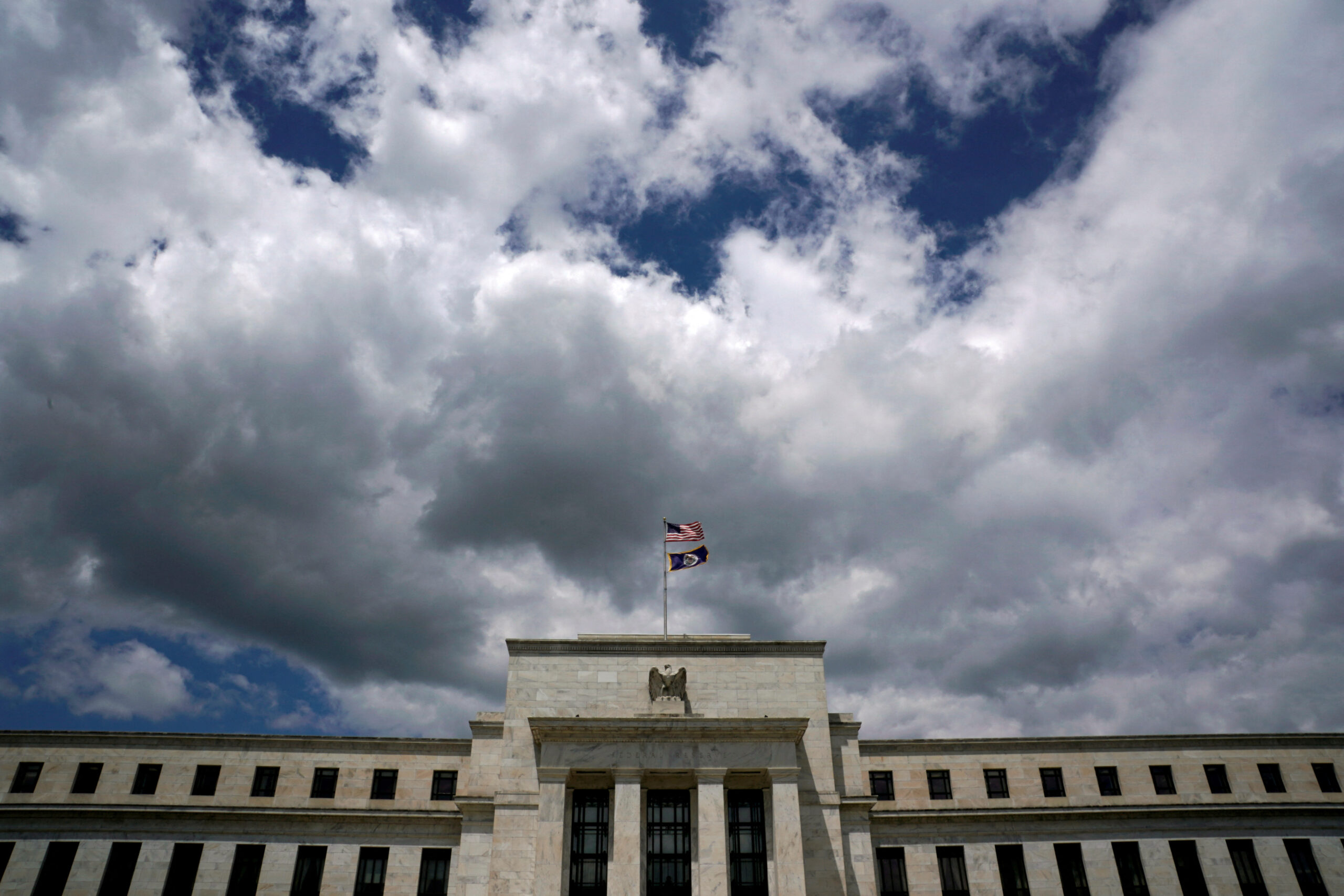A look at the day ahead in U.S. and global markets.
With U.S. markets now mapping the extent of the Federal Reserve’s easing cycle ahead, the prospect of inflation undershooting the central bank’s target adds a new twist.
Last week’s hefty half-point Fed rate cut leaves another 200 basis points of easing before the central bank gets back to what Fed officials themselves see as a long-term ‘neutral’ rate at 2.9%. Markets think they’ll do pretty much all of that within 12 months.
And with August’s update on the Fed’s favored PCE inflation gauge due later this week, Fed governor Christopher Waller on Friday said the main reason he opted for such a big start to the rate-cutting campaign was concern about the speed with which inflation is falling below target.
Claiming the Fed examined the latest components of the PCE index as it met, he said they convinced him to move big and suggested the speed of the whole easing cycle could be as fast as the tightening round two years ago.
“Core PCE is running below our target, and that’s with very high housing services inflation,” Waller said on CNBC. “That is what put me back a bit to say, wow, inflation is softening much faster than I thought it was going to.”
Whatever that means for the next 12 months, it’s an interesting steer on Friday’s PCE release – where consensus forecasts had the annual core PCE rate ticking up to 2.7% from 2.6% in July.
And the comments saw short-term Treasury yields slip back below 3.6% – just above two-year lows. The two-to-10-year yield curve steepened to some 14 basis points, its most positive in two years too. And bond volatility captured by the MOVE index fell back to its lowest since July.
The energy and international backdrop also encouraged the disinflation and easing picture more broadly.
Crude oil prices fell back again on Monday towards $70 per barrel – in part due to alarming European business surveys that show activity across the bloc contracting again in September, German industry struggling and an Olympics-related French service sector fillip fading.
Crude has now been running at a negative annual rate of more than 20% for three weeks. The U.S. gas pump price fell last week to its lowest since February and is also clocking year-on-year declines of about 17%.
Meanwhile, the euro zone survey shock saw the euro slide almost a cent at one point – briefly dipping back below $1.11 as the implications for European Central Bank easing were assessed. That’s buoyed the dollar index broadly – with Japan out on holiday on Monday.
As the equivalent UK surveys continued to show an expansion there, the euro skidded to its lowest level against the pound in two years.
Elsewhere, China’s yuan fell back after the central bank there trimmed its 14-day reverse repo rate – encouraging hopes of more easing and stimulus to revive the spluttering economy despite disappointed expectations for lending rate cuts last week.
World stocks were generally steady to higher – with Wall Street futures in positive territory ahead of the bell and the release of S&P Global’s U.S. flash business surveys for this month.
In politics, Democrat Kamala Harris appears to have extended her national opinion poll leads over rival Donald Trump in the latest series of surveys ahead of November’s White House race.
In the corporate world, the focus shifted to troubled chipmaker Intel (NASDAQ: INTC).
Bloomberg News reported on Sunday that U.S.-based asset management company Apollo Global Management (NYSE: APO) has offered to invest as much as $5 billion in Intel.
That came after news on Friday that Qualcomm (NASDAQ: QCOM) had last week approached Intel to explore a potential acquisition.
In Europe, shares of Germany’s Commerzbank fell 6% as the government said it would retain its 12% stake in the lender, which will likely keep any merger with Italy’s UniCredit on hold.
Key developments that should provide more direction to U.S. markets later on Monday:
* U.S. flash September business surveys from S&P Global, Chicago Fed August business survey
* Atlanta Federal Reserve President Raphael Bostic, Chicago Fed President Austan Goolsbee, and Minneapolis Fed Chief Neel Kashkari all speak. European Central Bank board member Piero Cipollone speaks
* UK Finance Minister Rachel Reeves addresses the annual Labour Party conference
* US Treasury sells 3-, 6-month bills
(Source: ReutersReuters)
Edward Cooke is a financial analyst, freelance writer, and editor. He has six years of experience in financial journalism. He has an in-depth understanding of equities markets, tracking major indices and providing real-time analysis on stock price movements, corporate earnings, and market sentiment. Read Full Bio










